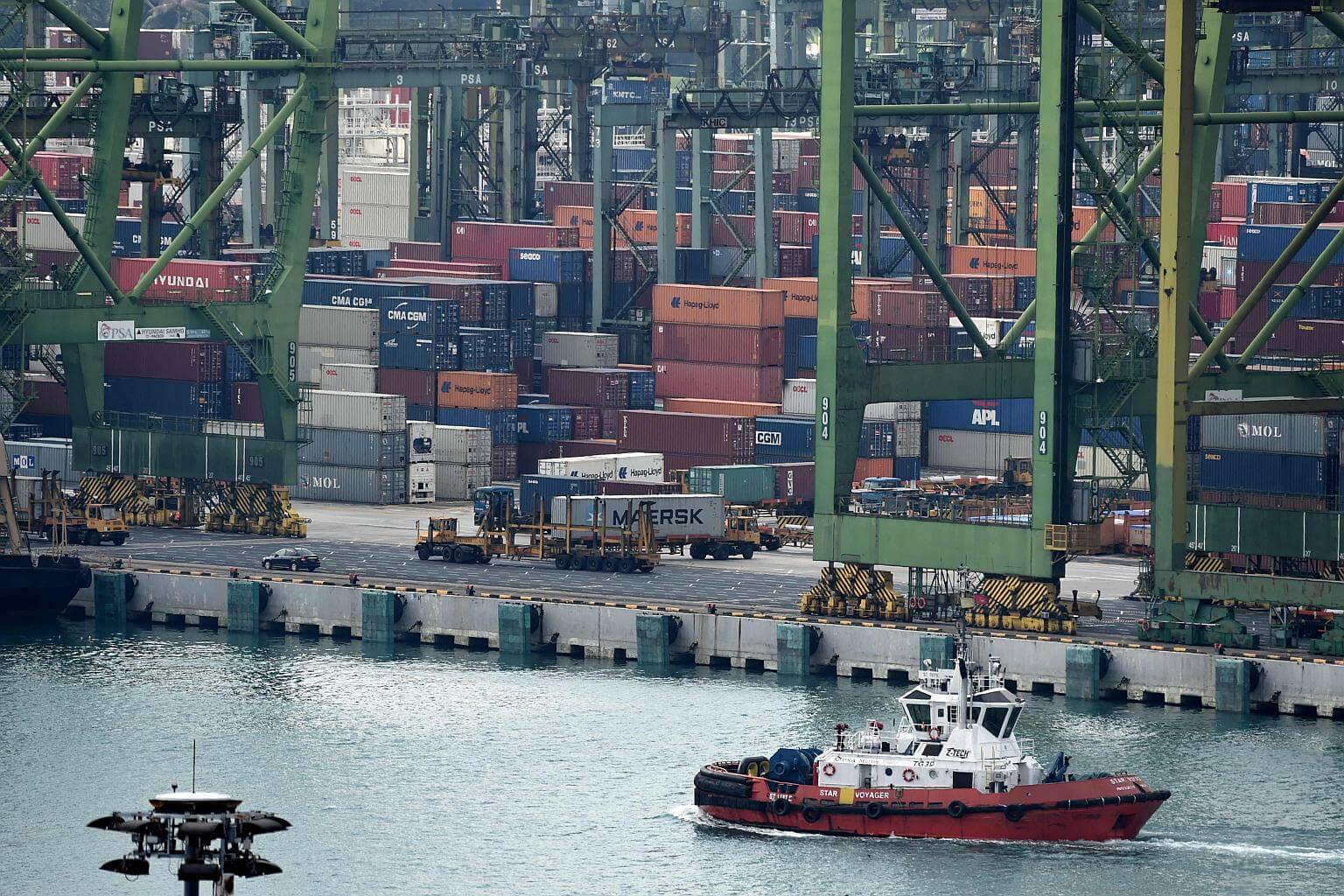Committee on the Future Economy report: Singapore must deepen global links, press on with open trade
Sign up now: Get ST's newsletters delivered to your inbox

Trailer trucks ply along the passageway at Tanjong Pagar container port in Singapore.
PHOTO: AFP
Wong Siew Ying
Follow topic:
SINGAPORE - Singapore must remain plugged into global trade and its people need to gain better knowledge of regional markets as the country embarks on the next phase of growth.
That is the thrust of a key strategy unveiled by the Committee on the Future Economy (CFE), tasked with charting the blueprint for the country's growth in the long run.
In a report released on Thursday (Feb 9), the committee noted that "the strategic imperative for free and open markets remains as important as ever" despite the current sentiments against globalisation.
It said that as an open and trade-dependent economy, Singapore "must resist the threat of rising protectionism" and continue to deepen links with overseas partners as well as seek opportunities in new markets.
"Singapore should also continue to work strategically with our global partners to pursue trade liberalisation and global economic integration, despite present protectionist sentiments in some of our key trading markets," the report noted.
Anti-globalisation sentiments have swept through Europe and the United States, with Britain voting to leave the European Union last year and President Donald Trump recently pulling the United States out of the Trans-Pacific Partnership, an ambitious Pacific Rim free trade pact.
The committee said Singapore has to strengthen trade cooperation, and reduce tariff and non-tariff barriers to trade, such as through the the Regional Comprehensive Economic Partnership.
To this end, it noted that Singapore - as Asean chairman in 2018 - can help to advance economic integration within the 10-member bloc and with its key partners.
Apart from trade, Singapore should also continue to seek opportunities to work with institutions such as the World Bank, Asian Development Bank and the Asian Infrastructure Investment Bank on regional development projects, the committee said.
To tap on advancing technology and rapid growth in Asia, the committee recommends setting up a Global Innovation Alliance (GIA) - a network to promote innovation and harness new ideas.
It envisions Singapore tertiary institutions and companies linking up with overseas partners in major innovation hubs and in key markets.
This alliance can form "innovation launchpads" to foster cooperation between local and foreign startups, or serve as "welcome centres" where Singapore firms can work with overseas partners.

The idea builds on existing tie-ups - the National University of Singapore (NUS) Overseas Colleges, for instance, already has links in the US, Europe and China.
As companies head abroad in search of opportunities, the committee said Singaporeans will need to acquire deeper knowledge of regional markets, which can only be done by spending time in those markets.
One way to encourage more people to take up overseas postings is to ease the concerns of Singaporean parents about their children's education, by helping the children enrol in the International Baccalaureate programme to ensure continuity of learning when they return to Singapore.
There is also a need for more specialised market research firms and consultancies to develop deeper and wider market knowledge of the region, the committee noted.
Other recommendations include developing more internationalisation programmes for students and having trade associations and economic agencies undertake more study trips to the region for businesses.

